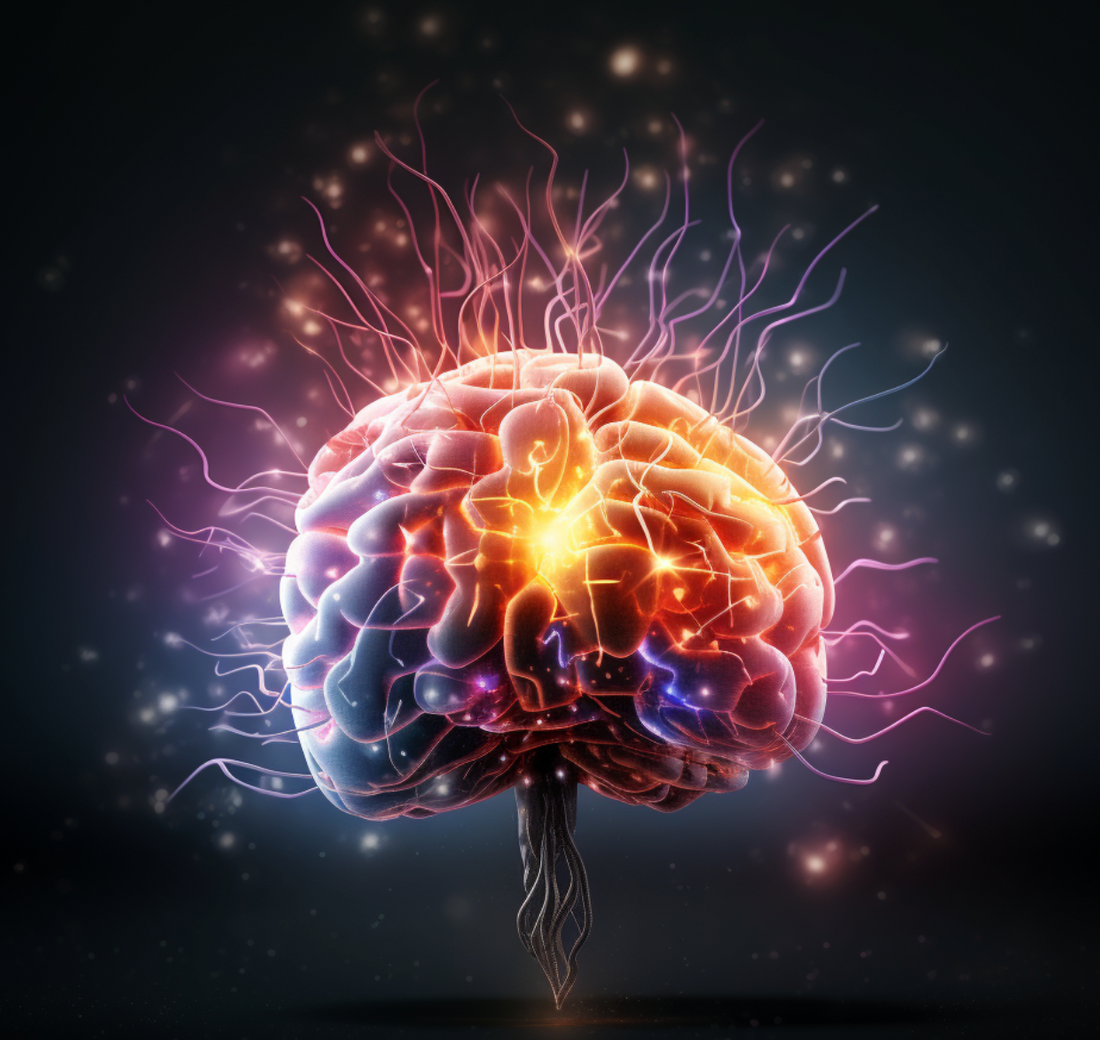The Role of Magtein in Enhancing Neuroplasticity


 Shop our Magtein
Shop our Magtein 
Just as a blacksmith hones a blade, our brains have the remarkable ability to adapt and rewire themselves, a process known as neuroplasticity.
Magtein, a patented form of magnesium, is believed to enhance this brain function.
Magtein’s impact on neuroplasticity can extend further into key aspects of overall health. Research suggests that magnesium supplements can be beneficial during pregnancy as they help to support the development of the fetal brain. The power of magnesium in general is something not to be downplayed, as it can significantly contribute to various aspects of our health.
For instance, magnesium greatly affects muscle function and can be a critical element for athletes and those seeking to enhance physical performance. Magtein, or magnesium L-threonate, is particularly interesting due to its potential impact on memory and cognitive function. Undeniably, Magtein could be a game-changer in the realm of cognitive health and wellness.
This article delves into the science behind Magtein, its potential impact on neuroplasticity, associated health benefits, and considerations for its use, providing a comprehensive view for those interested in cognitive health and wellness.
Key Takeaways
Neuroplasticity refers to the brain’s ability to adapt and reorganize itself, and Magtein enhances neuroplasticity by promoting the brain’s magnesium levels.
- Magtein has high bioavailability, ensuring that more magnesium reaches the brain, and it has neuroprotective properties that may protect against cognitive decline.
- Scientific evidence overwhelmingly supports Magtein as a cognitive enhancer, with studies showing its potent effect on reducing cognitive impairment and restoring aging brains to their youthful states.
- Magtein strengthens synaptic connections, leading to better memory formation and retention, and it plays a crucial role in memory consolidation and retrieval.
By signing up, you consent to receive For Youth emails
Get The Latest On Longevity Delivered To Your Inbox.
Understanding Neuroplasticity
In the realm of cognitive neuroscience, neuroplasticity refers to the inherent ability of the brain to reorganize and adapt itself by forming new neural pathways throughout an individual’s life. This dynamic process allows the neurons (nerve cells) in the brain to compensate for injury and disease and to adjust their activities in response to new situations or changes in their environment.
Neuroplasticity is not confined to a specific age but continues throughout life, contributing significantly to the brain’s functionality. It plays a crucial role in learning, memory, and recovery from brain damage.
Research indicates that lifestyle factors such as diet, exercise, and stress can influence neuroplasticity, highlighting the importance of maintaining a healthy lifestyle for optimal brain health.
What Is Magtein
Magtein, scientifically known as Magnesium L-Threonate, is a unique form of magnesium supplement specifically developed to enhance the brain’s magnesium levels and promote neuroplasticity. Its distinctive composition allows it to easily cross the blood-brain barrier, a function not commonly found in other forms of magnesium.
Magtein’s unique characteristics include:
- High Bioavailability: Magtein has a higher absorption rate compared to other forms of magnesium, ensuring more of it reaches the brain.
- Neuroprotective Properties: It may protect against age-related cognitive decline and improve certain aspects of brain function.
- Promotion of Neuroplasticity: Magtein boosts the brain’s ability to change and adapt, a key factor in learning and memory. Thus, the use of Magtein can play a significant role in enhancing cognitive abilities and overall brain health.
Scientific Evidence Behind Magtein
Building upon the unique characteristics of Magtein, numerous scientific studies have provided substantial evidence supporting its role in enhancing neuroplasticity and overall cognitive function.
Research published in the Journal of Neuroscience indicated that magnesium L-threonate, the primary component of Magtein, significantly increased brain synapse density, leading to improved spatial and associative memory in rats.
Furthermore, a 12-week randomized clinical trial highlighted that Magtein had a potent effect on reducing cognitive impairment in older adults.
These findings are complemented by a study in Neuron, which demonstrated that Magtein was able to restore aging brains to their youthful states.
Thus, the scientific evidence overwhelmingly suggests that Magtein holds promise as a potent cognitive enhancer by bolstering neuroplasticity.
Magtein’s Impact on Neuroplasticity

 Shop our Magtein
Shop our Magtein 
The brain’s capacity for neuroplasticity benefits significantly from Magtein, enhancing cognitive function and memory. Magtein acts as a potent catalyst for neuroplasticity, by facilitating the strengthening of neural connections and fostering the creation of new ones. This not only helps in maintaining cognitive health but also plays a crucial role in memory consolidation and retrieval.
Magtein’s impact on neuroplasticity is manifested in the following ways:
- It boosts the brain’s ability to reorganize and rewire itself, improving its adaptability to new information and experiences.
- It enhances the learning process by strengthening the synaptic connections between neurons, leading to better memory formation and retention.
- It helps in mitigating cognitive decline associated with aging, thus promoting brain health and longevity.
Potential Health Benefits of Magtein
In addition to enhancing neuroplasticity, Magtein offers a plethora of potential health benefits worth exploring.
As a patented form of magnesium, Magtein is designed to effectively cross the blood-brain barrier, making it more efficient in delivering magnesium to the brain than other forms. Its neuroprotective properties have been linked to improved cognitive functions, such as memory and learning.
Furthermore, studies suggest that Magtein may play a role in alleviating symptoms of depression and anxiety. It may also support healthy sleep patterns and fight against age-related cognitive decline.
Given these potential benefits, Magtein presents an intriguing option for those seeking to improve brain health and overall cognitive function. Its role in enhancing neuroplasticity only further underscores its potential.
How to Incorporate Magtein Into Your Routine
Consider integrating Magtein into your daily regimen to leverage its potential cognitive benefits. Incorporation can be achieved in a variety of ways, depending on individual preferences and lifestyle patterns.
Here are three simple strategies:
- Take as a standalone supplement: Magtein capsules are readily available and can be taken with a glass of water, preferably with meals.
- Incorporate into meals: Powdered Magtein can be mixed into food or beverages. It’s flavorless and doesn’t affect the taste of your meal.
- Combine with other supplements: For comprehensive health benefits, consider pairing Magtein with other brain health supplements like omega-3 fatty acids or vitamin B12.
The Unwind – By For Youth

→ Description The Unwind – By For Youth
The Unwind is a scientifically validated supplement designed to enhance sleep and relaxation, key factors promoting healthy aging. Its composition includes L-theanine, a naturally occurring amino acid derived from green tea, and Magtein™ (magnesium L-threonate), noted as the most effective form of magnesium capable of crossing the blood-brain barrier.
-Encourages improved sleep quality
-Minimizes stress and anxiety
-Fosters an uplifted mood
Learn More About For Youth
For Youth demystifies the science of longevity, making it accessible to everyone. With the view of considering aging as a “disease” that can be cured, we aim to help individuals slow down or even reverse aging at a cellular level, ultimately leading to a healthier and longer life.
Aging is the underlying cause of various health issues, ranging from minor problems like wrinkles to severe diseases like Alzheimer’s or cancer. By slowing down the aging process, one can significantly improve their overall health and well-being.
For Youth offers a biological age test and a range of science-backed, lab-tested, and carefully sourced supplements, such as NMN or resveratrol, to help you monitor and counteract the effects of aging.
→ Discover our different products!
–The Skin – Marine Collagen Peptides
–The Clock – Biological Age Test
→ Discover our different articles that could please you!
–Marine Collagen Peptides: The Secret to Glowing Skin and Strong Joints
–Marine Collagen vs Bovine Collagen: Which One Is Better for Your Skin and Joints?
–Fish for Beauty: Exploring the Benefits of Marine Collagen Peptides
-And more, visit our blog → (https://www.foryouth.co/news)!
Conclusion
In conclusion, Magtein emerges as a promising agent in boosting neuroplasticity, with potential implications for cognitive health. Its role in enhancing neural connections underscores its potential in combating cognitive decline.
However, careful consideration of dosage and individual health factors remains crucial. Future research should further elucidate Magtein’s mechanisms and long-term effects, potentially paving the way for more targeted and effective cognitive therapy strategies.








